Actionable Items for You:
- Death and taxes - both will come. Make sure you plan for it by planning your estate properly.
- The first step is getting a will in place - this will ensure your family doesn’t have to go through a lengthy probate (i.e. court proceedings) process when you pass away.
Need an estate planner? Check out Freeman Capital to learn more.
The saying goes that two things in life are certain. Death and taxes. And while we don’t wish either of those on anybody, those who prepare for them are setting up their family to win in the long-run. Preparing yourself for death, minimizing your taxes when you pass away, and making sure all of your family members are taken care of is part of what we in the business call estate planning.
There are a number of misconceptions about estate planning. For instance, many people think you need to be ultra-wealthy to create one, or that they’re only relevant to parents with young kids. Or that you should only start preparing after you’re a senior citizen.
In reality, an estate plan covers a variety of different scenarios — it can help protect you if you get in a car accident and need medical care, or keep your finances private if that same car accident is fatal.
But what is an estate plan? Glad you asked. Well, maybe you didn’t, but you should.
An estate plan can vary by person, but in general, it includes:
- A will
- Trust(s)
- A durable power of attorney
- Healthcare directive
- Beneficiary designations
- Guardianship designations
Don’t worry if those terms seem foreign to you - we’re going to go into these in more detail. However, it’s essential to create an estate plan that’s supervised by an estate planning attorney (i.e. a lawyer) who understands the laws in your state, including common pitfalls and loopholes. Don’t worry - we partnered with Helios to make the process simple.
Helios Integrated Planning works on our clients’ estate plans, and while they don’t act as your attorney, their team of attorneys has created detailed plans designed to be customized by you and tailored to your circumstances. A plan customized by you, for you, and your family.
The first step of estate planning that is most important is getting your will in place. A will is a legal guide for what you want to happen to your possessions when you die - your money, your assets, and that collection of Jordans all need to be put in here. In addition to the assets, one of the most important parts of a will is who you name an executor. You’ll want to reach out to a very trusted person, as this person becomes responsible for carrying out the wishes outlined in your will. If you don’t name an executor, they will be selected by a judge — it’s usually your closest living relative.
Ok, so we’ve got the will down. When you pass away, your will goes through probate, which is a public process involving a court. Having a valid will makes this process easier, but you still go through probate. Probate is also public, which means any information that goes through this process becomes part of the public record. This process can be more complicated and lengthy if you do not have a will and will put more stress on your loved ones.
Breaking past the basics - trusts, power of attorneys, and legal guardians.
Actionable Items for You:
- Moving past the basics, trusts, power of attorney’s, and naming legal guardians are excellent tools to use within your estate planning.
- It doesn’t need to be complicated, and we are here to help. But this stuff is important.
Bear with us - we’re going to get into the details here. This is all important stuff and can save you big tax money in the right situation, so take advantage - or reach out to us to get the ball rolling. The first thing we want to talk about here is a trust. If you set up trusts, they do not go through the probate process.
Trusts are legal entities and can be an excellent way to efficiently pass assets on to beneficiaries in many situations. There are various types of trusts (revocable and irrevocable) for different purposes (legacy, charitable giving, special needs, and so on). Revocable living trusts are the most commonly used in estate planning, and they’re what you may have in your estate plan if you work with us and Helios Integrated Planning to create your plan.
When you create a trust, you are the trustor. You also name a trustee — the person who will control your trust, as well as beneficiaries, who receive the assets within it.
Next up is a power of attorney, which gives someone (the agent) the right to act on your behalf when it comes to financial matters. A durable power of attorney lasts after you’re incapacitated. Essentially, if you are hit by a car and unconscious, this is the person who makes sure your mortgage gets paid.
Oftentimes, the executor, trustee, and the financial power of attorney are the same person simply because things go more smoothly when these three roles work well together. That said, they do not need to be the same person.
There are different types of powers of attorney. Medical powers of attorney are often granted as part of a broader healthcare directive (sometimes called an advanced care directive), which details your wishes in case you’re unable. You can tell your agent what you’d like them to do. The rules and forms for these directives vary by state.
Your estate plan and will also needs to detail who gets what. Things like retirement accounts and life insurance policies don’t go through probate - they pass directly to the named beneficiaries. That means you need to name who you want to be the beneficiary on these accounts.
Finally, if you have kids, your estate plan needs to detail who you want to be their legal guardian if anything should happen to you. You’re not legally required to notify this person (they don’t need to agree to it), but most people have this conversation ahead of time to ensure whomever they name as guardian is comfortable taking on that role should the need arise.
For most people, estate planning isn’t fun. It requires you to think about, in great detail, a lot of worst-case scenarios that we’d prefer not to think about. But planning ahead ensures that if any of those worst cases were to occur, your family would be taken care of. And what’s more, that your wishes are carried out.
Creating an estate plan ensures you make the important decisions, versus a probate judge or the wrong person.
Outline of Estate Planning Theme

Actionable Items for You:
- Have you properly planned for your estate after you pass away? We’ve partnered with Helios Integrated Planning (HIP) to get you going.
- Estate planning is often misunderstood, and there are tricks to make it easier, smoother, and set your family up right.
In November we’re going to be talking about Estate Planning. It’s an important part of wealth management, and is often overlooked. This isn’t just about getting your will in place (although, that’s an important step). It’s about much, much more.
In November we’re going to tackle a few main areas:
- Estate Planning Basics
- A guide to beneficiaries
- Understanding probate and how to avoid it
And to do this, we’re excited to announce our partnership with Helios Integrated Planning (HIP). We can now offer easy, quick, and affordable estate planning services to our clients.
Estate planning is one of the most misunderstood elements of financial planning — people assume they need millions in assets to create a plan, or they think the legal documents are too expensive and time-consuming. Our partnership with Helios allows us to debunk these myths once and for all.
Our clients will get access to simply answer questions around five major issues:
1). Who they want to inherit their assets
2). How they want that transfer to go
3). Who they want to take care of their finances if they can’t
4). Who they want to take care of their health if they can’t
5). Who they want to take care of their kids if they can’t
In many ways, answering these questions is the hardest part.
Helios not only has a team of estate planning experts creating and reviewing legal documents, but they also partner with legal teams locally to make sure every estate plan complies with state and local rules. Documents are optimized as much as possible for tax savings and are created to incorporate as many “what if” scenarios as possible.
Clients ultimately receive a will, trust, certification of trust, general transfer, property agreement (if needed), financial power of attorney, medical power of attorney (or advanced health care directive), and HIPAA release. These documents come with instructions and explanations to make it easy for clients to sign confidently. And we’ll help clients ensure the documents are notarized.
Beneficiaries
A guide to beneficiaries, the family or community members that receive your assets when you pass away
Actionable Items for You:
- Leaving your inheritance can be simplified by naming proper beneficiaries. Those savings / retirement accounts you have can make it easier.
- Trusts are another way to simplify things, and they aren’t just for the wealthy.
Your Guide To Beneficiaries
Building wealth can be an important part of financial planning, since it can help you enjoy life and provide for your family. But as the saying goes, you can’t take money with you when you die.
Part of financial planning is thinking about how you might leave an inheritance. Or, to put it in another way, who will be the beneficiary (or beneficiaries) for your various assets.
Since there are a number of ways to leave money to family members, friends, or charities, it probably won’t surprise you that there are just as many types of beneficiaries. We’ll walk through a few of those here, and then spend a minute looking at how a trust can help simplify the process.
Naming beneficiaries can be easy, especially for certain assets. You can name beneficiaries via:
Retirement accounts
If you have any kind of retirement account, including a 401(k) through work, you were likely asked to name a beneficiary. If you designate a beneficiary — and complete all the associated steps — the assets in your retirement account pass to your beneficiaries, according to IRS rules, upon your death. In other words, the assets in these accounts will bypass probate. However, the way your beneficiaries will be able to access the funds, and the amount of tax they’ll pay, varies significantly.
Life insurance
When you purchase a life insurance policy, you must name a beneficiary to receive the potential payout when you die. You can name primary and secondary (or contingent) beneficiaries. So, for instance, your primary beneficiary might be your spouse, but if your spouse were to die before you do or at the same time, the secondary beneficiary would receive the payout. Like retirement accounts, life insurance does not go through probate; this payout goes directly to the named beneficiary without the intervention of a court and separate from your will.
Will
A will is a legal document spelling out your wishes, including the distribution of your assets. When you name someone in your will to receive your assets, they’re a beneficiary of your will. After you die, the executor of your will contacts the beneficiaries to notify them of their inheritance and handle the logistics.
Pensions and annuities (kind of like a purchased pension)
Whether or not these policies have a beneficiary depends on how they’re structured. For instance, with some annuities, benefits stop when you die. However, other policies have a death-benefit provision that allows the policy owner to leave money to a beneficiary - these details vary by policy. Pensions, on the other hand, commonly pay out some kind of benefit. If you don’t name a beneficiary, this benefit could be determined by the terms of your pension plan, or by the state you live in. It’s important to name a beneficiary as well as a contingent beneficiary, and to keep those names current.

How a trust can help
If all of that was a bit too much, there is a simple answer - and they come in the form of establishing a trust before you pass away. They are not simply for the uber rich, they can be a valuable tool for many.
A living trust, sometimes called a revocable trust, can help simplify the wealth transfer if you want to leave an inheritance. In this scenario, you might transfer all of your assets into your trust, and name the trust as the beneficiary for both your life insurance policy and retirement accounts.
Then, instead of detailing beneficiaries and contingent beneficiaries for every account, policy, and asset, you simply set up a plan for your trust. For instance, you might specify that your trust be divided equally among your kids, and place age restrictions on when they’re able to access the money.
Doing your trust in this way can also make it easier to update your beneficiaries following major life events, like having a child or getting married.
That type of control isn’t generally available when you simply name a beneficiary for other types of accounts.
Probate
What is probate? We got you. Understanding probate and how to avoid it.

Actionable Items for You:
- When you pass away, your assets have to go through what is called a probate process. A will helps the transition go faster.
- Avoiding probate with many of your assets is possible with the use of proper beneficiary naming of your registered accounts and others, as well as potentially using a trust. More below.
Many of our clients don’t know what probate is, and that isn’t necessarily a bad thing. If you’ve never had a loved one die, you may not have experienced it.
Probate is the legal process by which a will is validated. If there’s no will, it’s the legal process of settling a person’s affairs.
How probate works
The process, and when it’s required, varies by state. In some states (like California), probate is automatic. It involves several steps, including getting a death certificate, identifying an executor or administrator for the estate, identifying assets, paying expenses like debt or taxes, and notifying or paying beneficiaries.
If there’s a will, the judge also validates it. For a will to be valid, it usually has to have witnesses. Sometimes, the witnesses must appear at probate, and sometimes they can sign an affidavit at the same time the will is signed instead.
Why is a will important? When there’s a will in place, it usually identifies the executor, assets, and beneficiaries, as well as any outstanding debts and obligations. This can make the probate process much easier, and sometimes cheaper. However, it’s also possible that someone may contest the will. A child may object if a new spouse is named as executor, for example.
The executor’s job
An executor can be a family member, trusted friend, or appointed person - it really depends on you and your wishes. And how involved the job of an executor is depends on the estate. While the executor may be named in the will, and be someone related to the deceased, an executor may also be a professional or appointed by the court.
It’s an executor’s job to take stock of the decedent’s assets — including any that aren’t listed or disclosed in the will. In most cases, this is a simple process, particularly if the deceased individual had an estate plan in place.
The executor is also responsible for taking control of any assets during the probate process, in order to protect those assets, especially if there ends up being any kind of dispute. In addition, the executor may be responsible for hiring an appraiser to look at the “death value” of certain assets, though sometimes the court will appoint an appraiser independent of the executor.
In addition to gathering assets, the executor must also notify any creditors that a death has occurred. This includes the bank if the deceased had a mortgage, but it can also include publishing an obituary so that any unknown creditors have an opportunity to come forward.
Finally, the executor must resolve the estate. This includes paying off debts, challenging any they view as unfair, and divvying up assets to the beneficiaries. If the will specifies assets go to minors, the executor may be instructed to set up a trust for those assets.
Who pays for probate?
As you can imagine, the probate process can take time to complete and may require lawyers, court appearances, or both. If this occurs, the legal fees are generally paid from the estate.
The process can go relatively quickly, but it’s not uncommon for it to take up to a year. In some cases, immediate family members who are beneficiaries can ask the court to release funds during the probate period. For instance, you might ask a probate judge to be reimbursed for funeral expenses before the estate is settled.
Intestate
If there is no valid will either because the decedent did not prepare one, or because the court rules the will invalid, the estate is said to be “intestate.”
In this case, any assets left over after debts are paid go to the closest living relative. Who that relative is may vary depending on state law and personal circumstances.
Avoiding probate
While having a will can facilitate probate, it doesn’t get you out of the process. However, there are some assets that are exempt from probate. For instance, some property passes outside of probate, notably life insurance policies, trusts, jointly owned property, and payable-on-death accounts. Most retirement accounts fall under this category, too, if you’ve named a beneficiary properly - we can help with that.
If you want to avoid the probate process and protect your financial details from becoming a part of the public record, consider creating an estate plan that includes a trust. There will still be details to take care of to settle your affairs, but those will fall to whomever you named trustee, versus your executor. Many times this is the same person.
We can talk through the details, including what options might make sense for you and your family, when we build your Estate Plan.
Need an estate planner? Check out Freeman Capital to learn more.









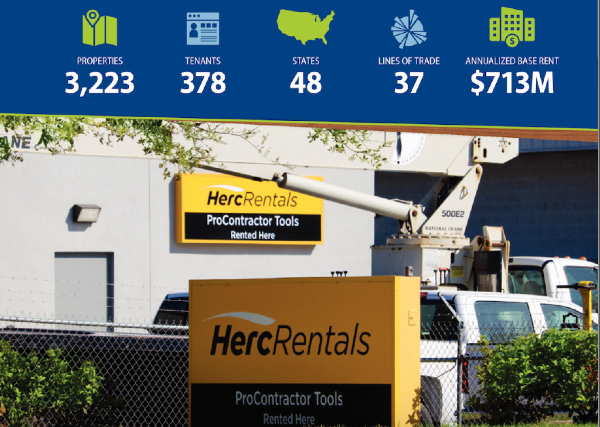








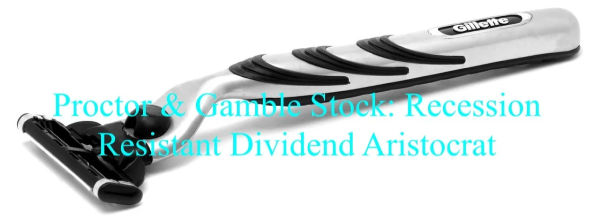
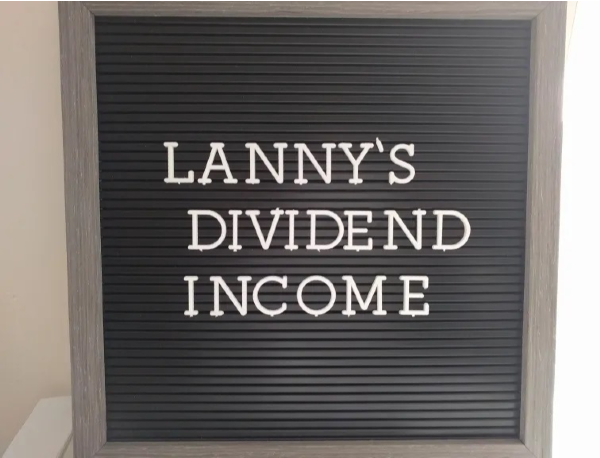
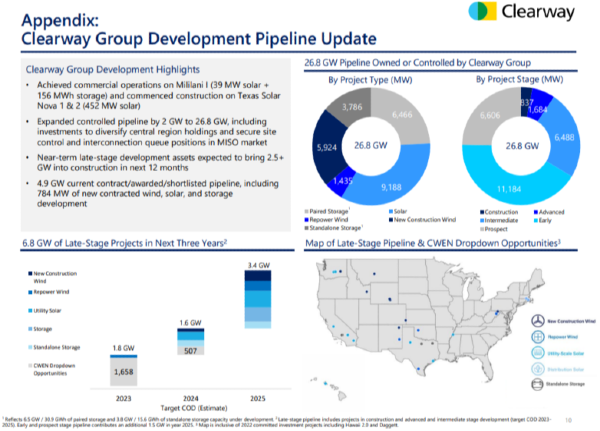
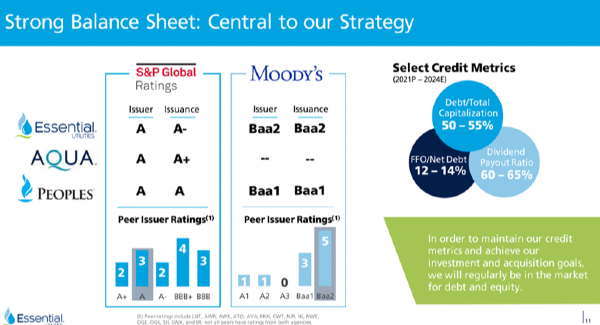








Actionable Items for You:
The saying goes that two things in life are certain. Death and taxes. And while we don’t wish either of those on anybody, those who prepare for them are setting up their family to win in the long-run. Preparing yourself for death, minimizing your taxes when you pass away, and making sure all of your family members are taken care of is part of what we in the business call estate planning. There are a number of misconceptions about estate planning. For instance, many people think you need to be ultra-wealthy to create one, or that they’re only relevant to parents with young kids. Or that you should only start preparing after you’re a senior citizen.
In reality, an estate plan covers a variety of different scenarios — it can help protect you if you get in a car accident and need medical care, or keep your finances private if that same car accident is fatal.
But what is an estate plan? Glad you asked. Well, maybe you didn’t, but you should.
An estate plan can vary by person, but in general, it includes:
Don’t worry if those terms seem foreign to you - we’re going to go into these in more detail. However, it’s essential to create an estate plan that’s supervised by an estate planning attorney (i.e. a lawyer) who understands the laws in your state, including common pitfalls and loopholes. Don’t worry - we partnered with Helios to make the process simple. Helios Integrated Planning works on our clients’ estate plans, and while they don’t act as your attorney, their team of attorneys has created detailed plans designed to be customized by you and tailored to your circumstances. A plan customized by you, for you, and your family.
The first step of estate planning that is most important is getting your will in place. A will is a legal guide for what you want to happen to your possessions when you die - your money, your assets, and that collection of Jordans all need to be put in here. In addition to the assets, one of the most important parts of a will is who you name an executor. You’ll want to reach out to a very trusted person, as this person becomes responsible for carrying out the wishes outlined in your will. If you don’t name an executor, they will be selected by a judge — it’s usually your closest living relative.
Ok, so we’ve got the will down. When you pass away, your will goes through probate, which is a public process involving a court. Having a valid will makes this process easier, but you still go through probate. Probate is also public, which means any information that goes through this process becomes part of the public record. This process can be more complicated and lengthy if you do not have a will and will put more stress on your loved ones.
Breaking past the basics - trusts, power of attorneys, and legal guardians.
Actionable Items for You:
Bear with us - we’re going to get into the details here. This is all important stuff and can save you big tax money in the right situation, so take advantage - or reach out to us to get the ball rolling. The first thing we want to talk about here is a trust. If you set up trusts, they do not go through the probate process.
Trusts are legal entities and can be an excellent way to efficiently pass assets on to beneficiaries in many situations. There are various types of trusts (revocable and irrevocable) for different purposes (legacy, charitable giving, special needs, and so on). Revocable living trusts are the most commonly used in estate planning, and they’re what you may have in your estate plan if you work with us and Helios Integrated Planning to create your plan.
When you create a trust, you are the trustor. You also name a trustee — the person who will control your trust, as well as beneficiaries, who receive the assets within it.
Next up is a power of attorney, which gives someone (the agent) the right to act on your behalf when it comes to financial matters. A durable power of attorney lasts after you’re incapacitated. Essentially, if you are hit by a car and unconscious, this is the person who makes sure your mortgage gets paid.
Oftentimes, the executor, trustee, and the financial power of attorney are the same person simply because things go more smoothly when these three roles work well together. That said, they do not need to be the same person.
There are different types of powers of attorney. Medical powers of attorney are often granted as part of a broader healthcare directive (sometimes called an advanced care directive), which details your wishes in case you’re unable. You can tell your agent what you’d like them to do. The rules and forms for these directives vary by state.
Your estate plan and will also needs to detail who gets what. Things like retirement accounts and life insurance policies don’t go through probate - they pass directly to the named beneficiaries. That means you need to name who you want to be the beneficiary on these accounts.
Finally, if you have kids, your estate plan needs to detail who you want to be their legal guardian if anything should happen to you. You’re not legally required to notify this person (they don’t need to agree to it), but most people have this conversation ahead of time to ensure whomever they name as guardian is comfortable taking on that role should the need arise.
For most people, estate planning isn’t fun. It requires you to think about, in great detail, a lot of worst-case scenarios that we’d prefer not to think about. But planning ahead ensures that if any of those worst cases were to occur, your family would be taken care of. And what’s more, that your wishes are carried out.
Creating an estate plan ensures you make the important decisions, versus a probate judge or the wrong person.
Outline of Estate Planning Theme
Actionable Items for You:
In November we’re going to be talking about Estate Planning. It’s an important part of wealth management, and is often overlooked. This isn’t just about getting your will in place (although, that’s an important step). It’s about much, much more. In November we’re going to tackle a few main areas:
And to do this, we’re excited to announce our partnership with Helios Integrated Planning (HIP). We can now offer easy, quick, and affordable estate planning services to our clients.
Estate planning is one of the most misunderstood elements of financial planning — people assume they need millions in assets to create a plan, or they think the legal documents are too expensive and time-consuming. Our partnership with Helios allows us to debunk these myths once and for all.
Our clients will get access to simply answer questions around five major issues:
1). Who they want to inherit their assets
2). How they want that transfer to go
3). Who they want to take care of their finances if they can’t
4). Who they want to take care of their health if they can’t
5). Who they want to take care of their kids if they can’t
In many ways, answering these questions is the hardest part. Helios not only has a team of estate planning experts creating and reviewing legal documents, but they also partner with legal teams locally to make sure every estate plan complies with state and local rules. Documents are optimized as much as possible for tax savings and are created to incorporate as many “what if” scenarios as possible.
Clients ultimately receive a will, trust, certification of trust, general transfer, property agreement (if needed), financial power of attorney, medical power of attorney (or advanced health care directive), and HIPAA release. These documents come with instructions and explanations to make it easy for clients to sign confidently. And we’ll help clients ensure the documents are notarized.
Beneficiaries
A guide to beneficiaries, the family or community members that receive your assets when you pass away
Actionable Items for You:
Your Guide To Beneficiaries
Building wealth can be an important part of financial planning, since it can help you enjoy life and provide for your family. But as the saying goes, you can’t take money with you when you die.
Part of financial planning is thinking about how you might leave an inheritance. Or, to put it in another way, who will be the beneficiary (or beneficiaries) for your various assets.
Since there are a number of ways to leave money to family members, friends, or charities, it probably won’t surprise you that there are just as many types of beneficiaries. We’ll walk through a few of those here, and then spend a minute looking at how a trust can help simplify the process.
Naming beneficiaries can be easy, especially for certain assets. You can name beneficiaries via:
Retirement accounts
If you have any kind of retirement account, including a 401(k) through work, you were likely asked to name a beneficiary. If you designate a beneficiary — and complete all the associated steps — the assets in your retirement account pass to your beneficiaries, according to IRS rules, upon your death. In other words, the assets in these accounts will bypass probate. However, the way your beneficiaries will be able to access the funds, and the amount of tax they’ll pay, varies significantly.
Life insurance
When you purchase a life insurance policy, you must name a beneficiary to receive the potential payout when you die. You can name primary and secondary (or contingent) beneficiaries. So, for instance, your primary beneficiary might be your spouse, but if your spouse were to die before you do or at the same time, the secondary beneficiary would receive the payout. Like retirement accounts, life insurance does not go through probate; this payout goes directly to the named beneficiary without the intervention of a court and separate from your will.
Will
A will is a legal document spelling out your wishes, including the distribution of your assets. When you name someone in your will to receive your assets, they’re a beneficiary of your will. After you die, the executor of your will contacts the beneficiaries to notify them of their inheritance and handle the logistics.
Pensions and annuities (kind of like a purchased pension)
Whether or not these policies have a beneficiary depends on how they’re structured. For instance, with some annuities, benefits stop when you die. However, other policies have a death-benefit provision that allows the policy owner to leave money to a beneficiary - these details vary by policy. Pensions, on the other hand, commonly pay out some kind of benefit. If you don’t name a beneficiary, this benefit could be determined by the terms of your pension plan, or by the state you live in. It’s important to name a beneficiary as well as a contingent beneficiary, and to keep those names current.
How a trust can help
If all of that was a bit too much, there is a simple answer - and they come in the form of establishing a trust before you pass away. They are not simply for the uber rich, they can be a valuable tool for many. A living trust, sometimes called a revocable trust, can help simplify the wealth transfer if you want to leave an inheritance. In this scenario, you might transfer all of your assets into your trust, and name the trust as the beneficiary for both your life insurance policy and retirement accounts.
Then, instead of detailing beneficiaries and contingent beneficiaries for every account, policy, and asset, you simply set up a plan for your trust. For instance, you might specify that your trust be divided equally among your kids, and place age restrictions on when they’re able to access the money.
Doing your trust in this way can also make it easier to update your beneficiaries following major life events, like having a child or getting married.
That type of control isn’t generally available when you simply name a beneficiary for other types of accounts.
Probate
What is probate? We got you. Understanding probate and how to avoid it.
Actionable Items for You:
Many of our clients don’t know what probate is, and that isn’t necessarily a bad thing. If you’ve never had a loved one die, you may not have experienced it.
Probate is the legal process by which a will is validated. If there’s no will, it’s the legal process of settling a person’s affairs.
How probate works
The process, and when it’s required, varies by state. In some states (like California), probate is automatic. It involves several steps, including getting a death certificate, identifying an executor or administrator for the estate, identifying assets, paying expenses like debt or taxes, and notifying or paying beneficiaries. If there’s a will, the judge also validates it. For a will to be valid, it usually has to have witnesses. Sometimes, the witnesses must appear at probate, and sometimes they can sign an affidavit at the same time the will is signed instead.
Why is a will important? When there’s a will in place, it usually identifies the executor, assets, and beneficiaries, as well as any outstanding debts and obligations. This can make the probate process much easier, and sometimes cheaper. However, it’s also possible that someone may contest the will. A child may object if a new spouse is named as executor, for example.
The executor’s job
An executor can be a family member, trusted friend, or appointed person - it really depends on you and your wishes. And how involved the job of an executor is depends on the estate. While the executor may be named in the will, and be someone related to the deceased, an executor may also be a professional or appointed by the court.
It’s an executor’s job to take stock of the decedent’s assets — including any that aren’t listed or disclosed in the will. In most cases, this is a simple process, particularly if the deceased individual had an estate plan in place.
The executor is also responsible for taking control of any assets during the probate process, in order to protect those assets, especially if there ends up being any kind of dispute. In addition, the executor may be responsible for hiring an appraiser to look at the “death value” of certain assets, though sometimes the court will appoint an appraiser independent of the executor.
In addition to gathering assets, the executor must also notify any creditors that a death has occurred. This includes the bank if the deceased had a mortgage, but it can also include publishing an obituary so that any unknown creditors have an opportunity to come forward.
Finally, the executor must resolve the estate. This includes paying off debts, challenging any they view as unfair, and divvying up assets to the beneficiaries. If the will specifies assets go to minors, the executor may be instructed to set up a trust for those assets.
Who pays for probate?
As you can imagine, the probate process can take time to complete and may require lawyers, court appearances, or both. If this occurs, the legal fees are generally paid from the estate.
The process can go relatively quickly, but it’s not uncommon for it to take up to a year. In some cases, immediate family members who are beneficiaries can ask the court to release funds during the probate period. For instance, you might ask a probate judge to be reimbursed for funeral expenses before the estate is settled.
Intestate
If there is no valid will either because the decedent did not prepare one, or because the court rules the will invalid, the estate is said to be “intestate.”
In this case, any assets left over after debts are paid go to the closest living relative. Who that relative is may vary depending on state law and personal circumstances.
Avoiding probate
While having a will can facilitate probate, it doesn’t get you out of the process. However, there are some assets that are exempt from probate. For instance, some property passes outside of probate, notably life insurance policies, trusts, jointly owned property, and payable-on-death accounts. Most retirement accounts fall under this category, too, if you’ve named a beneficiary properly - we can help with that.
If you want to avoid the probate process and protect your financial details from becoming a part of the public record, consider creating an estate plan that includes a trust. There will still be details to take care of to settle your affairs, but those will fall to whomever you named trustee, versus your executor. Many times this is the same person.
We can talk through the details, including what options might make sense for you and your family, when we build your Estate Plan.
Need an estate planner? Check out Freeman Capital to learn more.